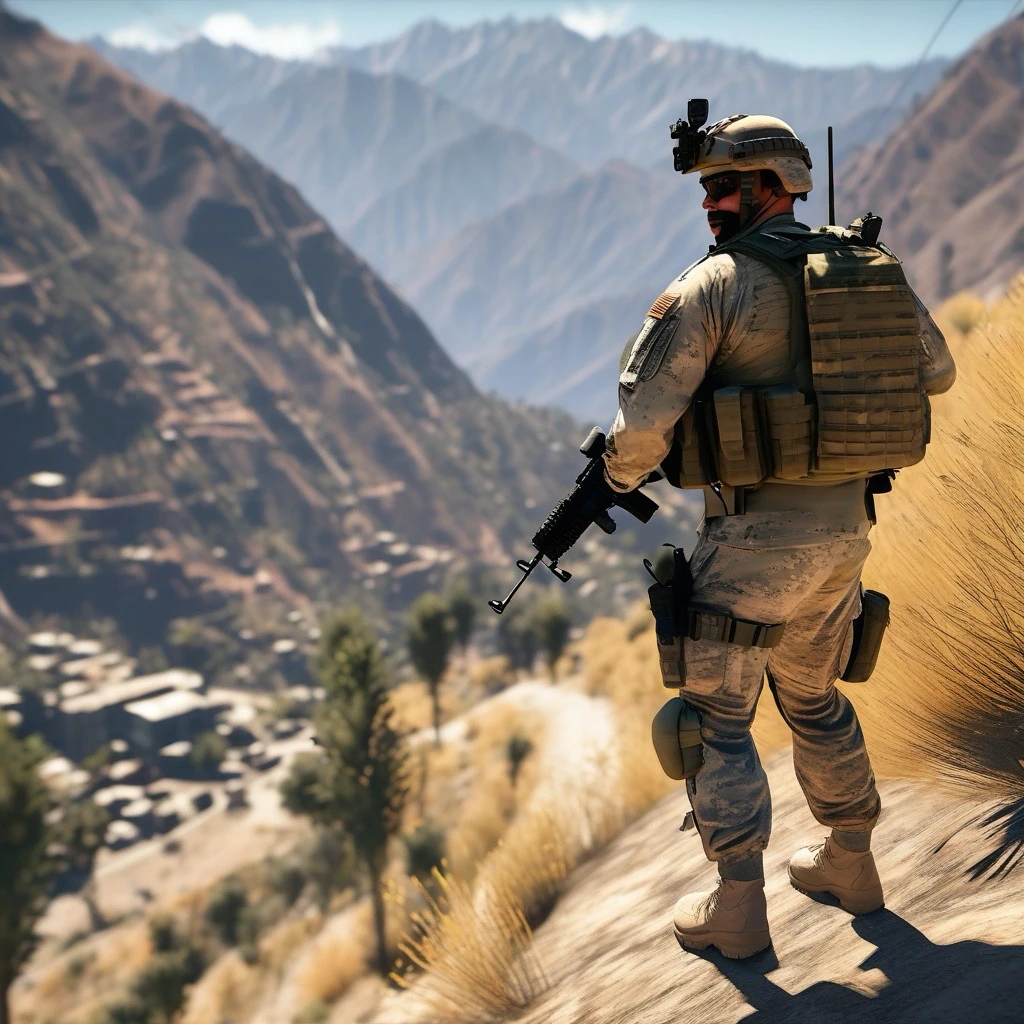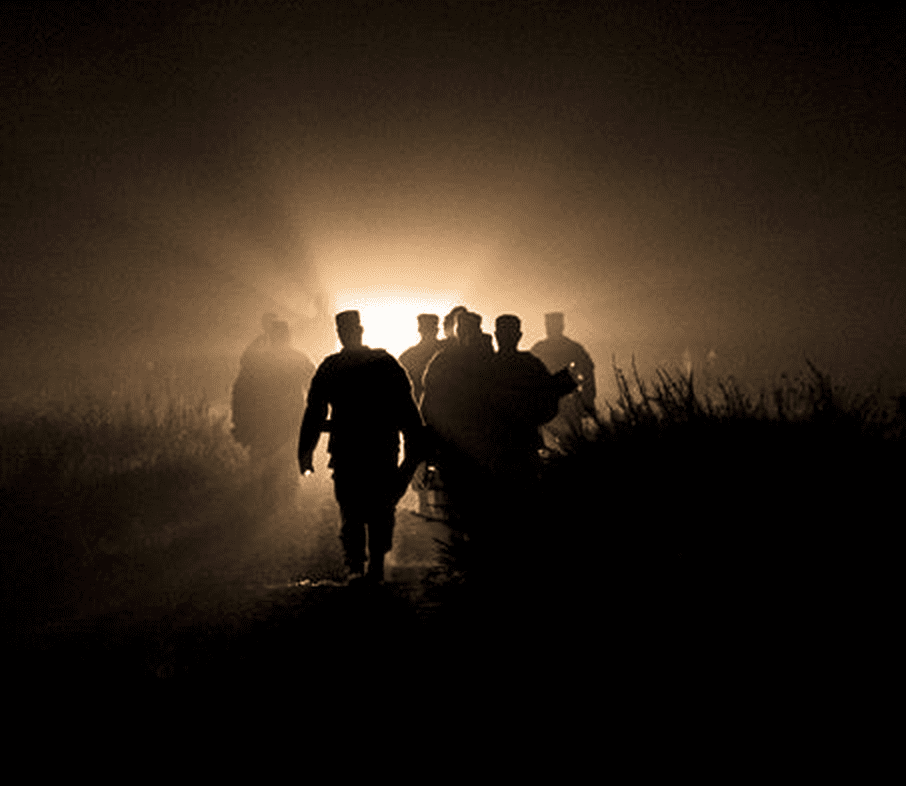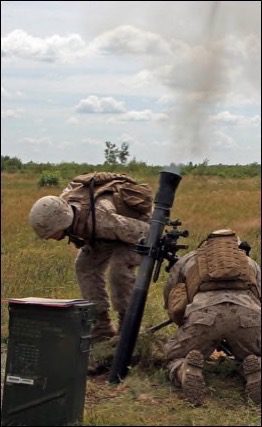Aggressive Yuma Proving Ground Military Defense Attorneys
Stationed at Yuma Proving Ground, Arizona? Facing a court-martial, UCMJ action, Administrative Separation Board, or other Adverse Administrative Action? Call our experienced Yuma Proving Ground military defense lawyers at 1-800-921-8607 for a free consultation.
Elite Military Defense Lawyers
“Our military defense lawyers are among the most experienced and hard-hitting in the world. With an unparalleled track record, we provide aggressive, strategic defense tailored to each client’s unique situation. Trust us to fight relentlessly for your rights and deliver the best possible outcome.” (Michael Waddington, Military Defense Lawyer)
Yuma Proving Ground Military Defense Lawyers
Arizona Court Martial Lawyers
Hiring the Best Court Martial Lawyer at Yuma Proving Ground, AZ: A Comprehensive Guide
 Facing a court-martial at Yuma Proving Ground (YPG) is a stressful and daunting experience. It is crucial to have skilled legal representation to protect your rights, career, and future. This guide will help you navigate the process of hiring the best court martial lawyer for your case.
Facing a court-martial at Yuma Proving Ground (YPG) is a stressful and daunting experience. It is crucial to have skilled legal representation to protect your rights, career, and future. This guide will help you navigate the process of hiring the best court martial lawyer for your case.
Understanding the Importance of a Court Martial Lawyer
Military law is complex and distinct from civilian law. A court martial lawyer specializes in the Uniform Code of Military Justice (UCMJ) and understands the intricacies of military legal proceedings. They can:
- Provide expert legal advice: Explain the charges against you, potential consequences, and available defenses.
- Investigate the case: Gather evidence, interview witnesses, and build a strong defense strategy.
- Negotiate with prosecutors: Seek plea deals or lesser charges to minimize potential penalties.
- Advocate for you in court: Represent you in court martial proceedings, challenge evidence, and present your case effectively.
- Protect your rights: Ensure your rights are upheld throughout the legal process.
Qualities of a Top Court Martial Lawyer
When searching for a court martial lawyer at YPG, consider the following qualities:
- Experience: Look for a lawyer with extensive military law experience, specifically defending clients at YPG.
- Expertise: Choose a lawyer who specializes in the type of charges you are facing, whether it’s sexual assault, drug offenses, or other UCMJ violations.
- Reputation: Assess the lawyer’s reputation and track record by seeking recommendations from colleagues, friends, or online reviews.
- Communication: A good lawyer will communicate clearly and keep you informed throughout the legal process.
- Dedication: Find a lawyer passionate about defending military personnel who will fight tirelessly for your rights.
Where to Find Court Martial Lawyers at YPG
There are several resources available to help you find a qualified court martial lawyer at YPG:
- Military Legal Assistance Office: This office can provide you with a list of qualified lawyers and may offer limited legal assistance.
- Referral Services: Organizations like the National Association of Criminal Defense Lawyers (NACDL) and the American Bar Association (ABA) offer lawyer referral services.
- Online Directories: Websites like Avvo and Martindale-Hubbell list lawyers by location and practice area.
- Word-of-Mouth Referrals: Ask colleagues, friends, or family members if they can recommend a lawyer with experience in military law.
Interviewing Potential Military Defense Lawyers
Before hiring a lawyer, schedule consultations with several candidates. Ask about their experience, fees, and approach to your case. Feeling comfortable and confident in your lawyer’s ability to represent you effectively is essential.
Important Considerations
When choosing a court martial lawyer at YPG, keep the following factors in mind:
- Fees: Discuss the lawyer’s fees upfront and ensure you understand their billing structure.
- Availability: Choose a lawyer with the time and resources to devote to your case.
- Location: Consider the lawyer’s location and proximity to YPG.
- Personality: Find a lawyer whose personality and communication style mesh well with yours.
Following these guidelines, you can find the best court martial lawyer to represent you at Yuma Proving Ground and protect your rights and future. Remember, choosing the right lawyer can make a significant difference in the outcome of your case.
Military court-martial cases skew heavily in favor of the prosecution. Besides outnumbering the defense team, the prosecuting team controls the calling of witnesses and implements a shotgun approach to filing charges. A shotgun approach means the prosecution files numerous charges, hoping one sticks. Our brave men and women who serve their country deserve a level playing field. The Yuma Proving Ground military defense lawyers at Gonzalez and Waddington do much more than make the legal fight fair. Our hard-hitting approach negates the advantage leveraged by military prosecutors.
 Led by world-renowned criminal attorney Michael Waddington, our aggressive Yuma Proving Ground defense lawyers defend clients in the Army, Navy, Marines, Air Force, and Coast Guard. As a best-selling author, Mr. Waddington’s legal skills have brought him onto the national stage by representing clients in some of the highest-profile legal cases argued during the War on Terror. By taking on a small caseload, our superior military defense team fights like gladiators to protect the rights of the men and women who dedicate their lives to our country.
Led by world-renowned criminal attorney Michael Waddington, our aggressive Yuma Proving Ground defense lawyers defend clients in the Army, Navy, Marines, Air Force, and Coast Guard. As a best-selling author, Mr. Waddington’s legal skills have brought him onto the national stage by representing clients in some of the highest-profile legal cases argued during the War on Terror. By taking on a small caseload, our superior military defense team fights like gladiators to protect the rights of the men and women who dedicate their lives to our country.
Located in southwestern La Paz County and western Yuma County, Yuma Proving Ground is one of the largest military bases in the world. It sits 30 miles northeast of Yuma, Arizona, in the vast Sonoran Desert. At 1,307 square miles, It provides enough space for the army to test military equipment in a climate that resembles what the United States military finds in the Middle East.
The History of Yuma Proving Ground
The United States Army has a presence in Yuma dating back to 1850. Fort Yuma sat high on a hill overlooking the strategic Yuma crossing on the Colorado River. The army’s primary mission consisted of protecting travelers of the crossing from renegade Native American tribes and violent Mexican bandits.
The founding of Yuma Proving Ground goes back to the creation of Camp Laguna and the Army Corp of Engineers Yuma Test Branch that the army constructed in 1943. Army engineers tested a wide variety of combat bridges and amphibious vehicles for deployment all over the world. The army closed both facilities after the end of World War II and then reactivated the base as the Yuma Test Station in 1951. Yuma Proving Ground became the official name of the base in July 1973.
The Ideal Area to Test the Latest Military Weapons and Equipment
 Yuma Proving Ground tests virtually every weapons system the United States Army developed. The expanse of the Sonoran Desert allows the army to test powerful artillery and munitions away from major urban regions. More than 3,000 army employees and contractors work at Yuma Proving Ground.
Yuma Proving Ground tests virtually every weapons system the United States Army developed. The expanse of the Sonoran Desert allows the army to test powerful artillery and munitions away from major urban regions. More than 3,000 army employees and contractors work at Yuma Proving Ground.
During a typical year, army personnel fire more than 500,000 mortar, missile, and artillery rounds within installation boundaries. Paratroopers perform more than 36,000 parachute drops yearly, and more than 4,000 air sorties travel over the Arizona sky. Yuma Proving Ground houses the longest land artillery range in the United States at more than 40 miles.
Aggressive Yuma, AZ Military Defense Attorneys
From defending a private fraud charge to standing tall with an officer during a felony court-martial case, the Yuma Proving Ground military defense lawyers at Gonzalez & Waddington get the job done inside military courtrooms. Among the more than 450,000 attorneys working in the United States, Michael Waddington ranks in America’s top 200 and 100 trial lawyers. His legal acumen has made him the go-to expert on several national news media outlets.
You deserve the best defense attorney to overcome the odds thrown at you by military prosecutors. Call our office today to emerge victorious from a military courtroom and, in the process, get back your good name.
When You Need an Army Court Martial Lawyer in Arizona
Yuma Proving Ground Court Martial Attorneys
Soldiers at Yuma Proving Ground deserve the best attorneys in court-martial or administrative separation proceedings.
If you or a family member are stationed at Yuma Proving Ground and are accused of a military crime such as sex assault or if you are facing an administrative separation, Article 15, show cause board, letter of reprimand, or GOMOR, then contact our military lawyers today.
Marine Corps Air Station Yuma AZ
The MCAS Yuma School Liaison Program website provides contact information for Air Station Liaison Officers who can offer your child information and guidance on local schools and educational resources. Visit this website to learn more about the Yuma Open Enrollment Educational System, surrounding school districts, homeschooling, parent resources in Arizona, and more.
Moving to a new base can be challenging, but MCA’s Yuma is a great place to be at home. Continue reading our detailed guide to MCAS Yuma to get to know your new base and the surrounding community. Marine Corps Air Station Yuma, Arizona, is located in the southwestern corner of Arizona, just across California and Mexico.
If you have received an authorization letter from Tricare or United Healthcare, you can call the provider’s office to arrange your first appointment. Your sponsor can also advise you on the best alternative airport, as Yuma International Airport is nearby (about 35 miles from the Air Station).
All active, compulsory members are obliged to visit one of our behavioral physicians in the clinic. Please get in touch with the X-ray laboratory to order a technician to help you.
Several other DoD-approved resources, including the Marine Corps Community Services (MCCS) counseling center and Spousal and Family Therapy experts, are free. The Relocation Assistance Program assists service members and their families in relocating from one agency to another. MCA’s Yuma Temporary Lodging Facility welcomes active family members, TADs, PC retirees, godparents, and guests.
The staff arrives at MCAS Yuma during working hours and checks in at the headquarters in building 980. Staff lives in a shared flat where flats, houses, and post offices are delivered to different addresses. A full list of hotlines and contact information can be found on MCAS-Yuma’s website.
Air Station Yuma of the Marine Corps is two miles south of Yuma and is responsible for training the Navy’s Atlantic and Pacific Fleet Air Force. In addition, the air station maintains the runway and taxiways of Yuma International Airport and provides air traffic control, safety, and emergency services on both sides of the airport. In the 21st century, MCAS Yuma, with Harrier training, F4 Phantoms, and others, is considered the Marine Corps’s busiest air force base, if not the busiest air-to-surface weapons training mission.
The Air Station houses Marine Aircraft Group 13, Marine Wing Support Squadron 371, Marine Fighter Training Squadron 401, Marine Air Control Squadron 1, and Combat Service Support Detachment 16. The Marine Corps Air Station Yuma is also the Marine Aviation Weapons and Tactics Squadron 1 operational base, the third Marine Aviation Weapons Unit. Each year, MCAS Yumas hosts about 70 aviation units, bringing an average of 600 aircraft and 14,000 employees to the station for training.
Marine Fighter Training Squadron 401 (VMFT-401), a Marine Air Reserve Squadron based in MCAS Yuma, includes active & selected Marine Corps Reservists who provide various air combat training (DACT) for the United States. Armed Forces and select NATO and allied coalition partners. Marine Aviation Weapons and Tactics Squadron 1 (MAWTS-1), a major aviation command in MCA Yuma, conducts Marine Corps tactical units training in weapon tactics and instructor courses (WTI). About 100 aircraft units are deployed yearly for training, bringing some 14,000 personnel and 600 aircraft to Yuma for a few days to seven weeks.
On January 1, 1954, the US Air Force reactivated the base as a training facility for the Air Defense Command (ADC). In 1956, the base was renamed Vincent Air Force Base, and Yuma Air Field to the Navy in 1959 as a Marine Corps base. MCAS Yuma houses several squadrons of the AV-8B Harrier IIs of the 3rd Marine Aircraft Wing, the Marine Aviation Weapons and Tactics Squadron 1 (MAWTS-1), the Marine Fighter Training Squadron 401 (VMFT-401), and the Air Combat Adversary Squadron of the 4th Marine Aircraft Squadron of the Marine Corps Reserve.
On July 7, 1951, the Air Force reactivated the base as the 4750th Air Force Squadron and resumed training as part of the Western Air Defense Force. The Base became one of the country’s busiest flight schools and trained pilots in single-engine AT-6 flight apprentices, multi-engine T-17 trainers, and B-17 flying forts. When the Airfield came under military control in 1954, the US Air Force began using it as a training base and renamed it Yuma Air Base.
After the 1980 handover of VMFAT-101 from MCAS El Toro, California, Marine Corps Air Station Yuma (Vincent Field) became the main operational base of Marine Force Pacific for the AV-8B Harrier II and Cognizance Marine Aircraft Group 13 (MAG-13). In addition, there are many historic state parks in the area, including Yuma Territorial Prison, Yuma Valley Railway, Century House Museum, Cocopah Indian Museum, and St. Thomas Mission. 14 commandos were serving at MCAS Yuma, with 15 commandos at the end of 2015, a total of 4,292 military personnel, at least 5,531 family members and 2,172 civilian employees, out of a total population of 11,995.
The 4,800-acre city/county of Yuma, Arizona, is bounded to the north and east by South Avenue 3E (East 32nd Street), to the south by County 14th Street, and to the west by the city of Yuma’s Main Canal. The boundaries vary beyond the property’s boundaries but remain part of the city. Many shallow wells in Yuma Mesa shield the upper grain units, but the water quality is variable because of the large volume of irrigation and replenishment.
Yuma’s largest civilian employer, the Yuma Proving Ground, dates back to World War II. With over 1,300 square miles, it is now one of the largest military facilities in the world and hosts over 100 tests.
